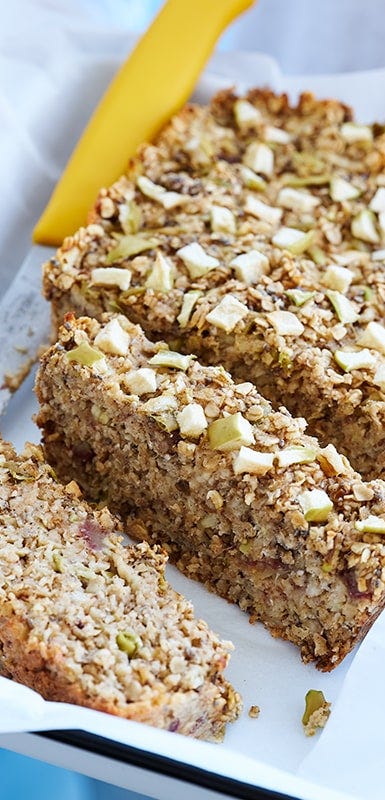WeightWatchers vs Intermittent Fasting
WeightWatchers vs. Intermittent Fasting
Losing weight can be tough—we’re here to make it easier. In this article, we'll compare intermittent fasting with the WeightWatchers® weight loss program. We'll examine the types of foods consumed, potential health risks, and how easy it is to incorporate both options into your daily routine.
Navigating the landscape of weight management often involves exploring diverse dietary approaches. This comparison aims to highlight the key differences and considerations between WeightWatchers and intermittent fasting, empowering you to make an informed decision about which approach aligns best with your goals for sustainable weight loss and healthy eating.
Does fasting work for weight loss?
Intermittent fasting has gained popularity as a strategy for weight loss over the last decade. There are three main variations including time restricted feeding (16:8 method), alternate day fasting, and the 5:2 method. The 16:8 method typically involves a 16 hour fasting period and 8 hour feeding period per 24 hours. Alternate day fasting is one day of substantial energy restriction, followed by a regular day of eating. 5:2 intermittent fasting involves two days per week of substantial energy restriction, with 5 days of “regular” eating. People who follow intermittent fasting can eat whatever they want but there are recommendations to eat a healthy, well-balanced diet for best results.
According to the latest research, while intermittent fasting can help people lose weight, it’s no more effective than traditional weight-loss diets. Plus, research shows a significant proportion of people struggle to stick with fasting long term.
The focus of most intermittent fasting techniques is on when and how much to eat, rather than the quality of food choices. As well as restricting your lifestyle, this may also increase the risk of eating a poorly balanced diet and making less-healthy choices during non-fasting periods. The most successful dietary approach for weight loss is one that is sustainable for you.
If you are considering intermittent fasting for weight loss, it is important to consult a healthcare professional to ensure that it is safe and suitable for your individual needs and health status.
Key differences between WeightWatchers and intermittent fasting
Intermittent fasting | ||
| What can I eat on this plan? | Nothing is off limits! WeightWatchers is built on our proven Points system, which converts calories (aka kilojoules), saturated fat, added sugar, fibre and, protein into one easy-to-use number. You'll get a customised Points Budget to “spend” on any foods you choose. Simply track your food in the app—as long as you stay within your budget, you’ll lose weight. You'll also get a list of nutrient-dense ZeroPoint foods requiring no tracking or measuring. Of course, balanced, healthy eating behaviours are still recommended. | Intermittent fasting involves moving between cycles of fasting or a limited calorie intake and unrestricted eating. The timeframe of the fast is dependent on the particular diet you’re following. This means that you are restricted to not eating any food, or eating very little during fasting periods. |
| Liveability | The WeightWatchers programs have been developed based on principles of nutrition and behaviour-change science to build sustainable healthy habits around food, physical activity, and mindset. The easy-to-use app features include; "What To Eat" providing eating out and cooking inspo and expert advice. The barcode scanner means you can find the Points in any packaged food quickly. And the "My Progress" feature allows you to see which habits are getting you the results you want—and what you might need to improve. | Due to its restrictive nature, intermittent fasting isn’t sustainable long-term for most people. It can be challenging to coordinate fasting around eating out and celebrations with friends and family. |
| Health risk & science | Study after study shows the power of the WeightWatchers program to help you lose weight and stay on track. In fact, there are over 125 studies published on WeightWatchers, including more than 35 independent clinical trials that prove our efficacy. | The Dietitians Association of Australia expresses concern about the diet’s focus on the quantity of food eaten rather than the quality. While you may be hitting your energy target, you may not actually be meeting your required daily nutrient intake—something that could seriously affect your health in the long run. |
| Social support |
WeightWatchers provides both in-person and virtual workshops, round-the-clock live coaching, customer service support, and Connect—an exclusive social network connecting members for continuous motivation and inspiration whenever it's needed. |
Intermittent fasting content
Break the fast with WeightWatchers recipes
FAQs
Short answer: Yes
“We don't recommend any approach to eating that is overly-restrictive, but for some people, limiting eating to certain times of the day can be a helpful behavioural strategy,” says Zoe Griffiths, a UK-based registered dietitian. “There is no ‘one size fits all’ approach when it comes to adopting a healthier pattern of eating. What’s important is finding foods you enjoy and establishing an eating pattern you can live on for the long term—one that doesn't leave you feeling overly hungry, which can lead to overeating and feelings of restriction that are unsustainable,” she adds.
“Developing a healthier pattern of eating and achieving sustainable weight loss is not about quick fixes. If restricting the times of the day that you eat fits with your family, fits with your lifestyle and doesn’t leave you feeling restricted—in other words is something that you feel that you could live with for the long term, then it may be a helpful strategy”.





